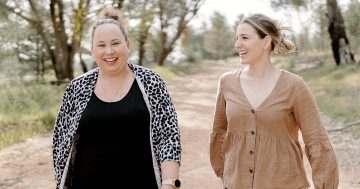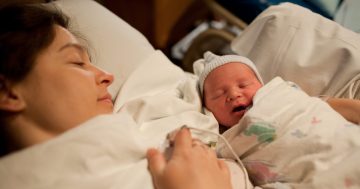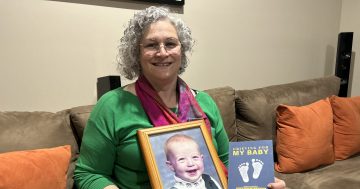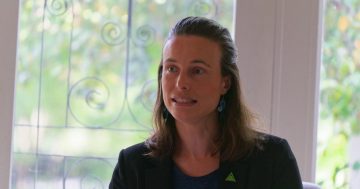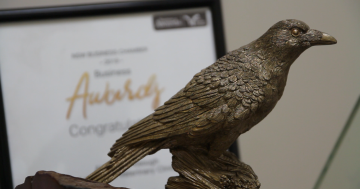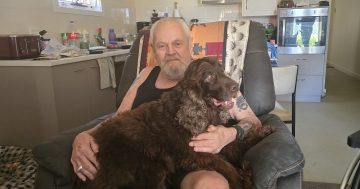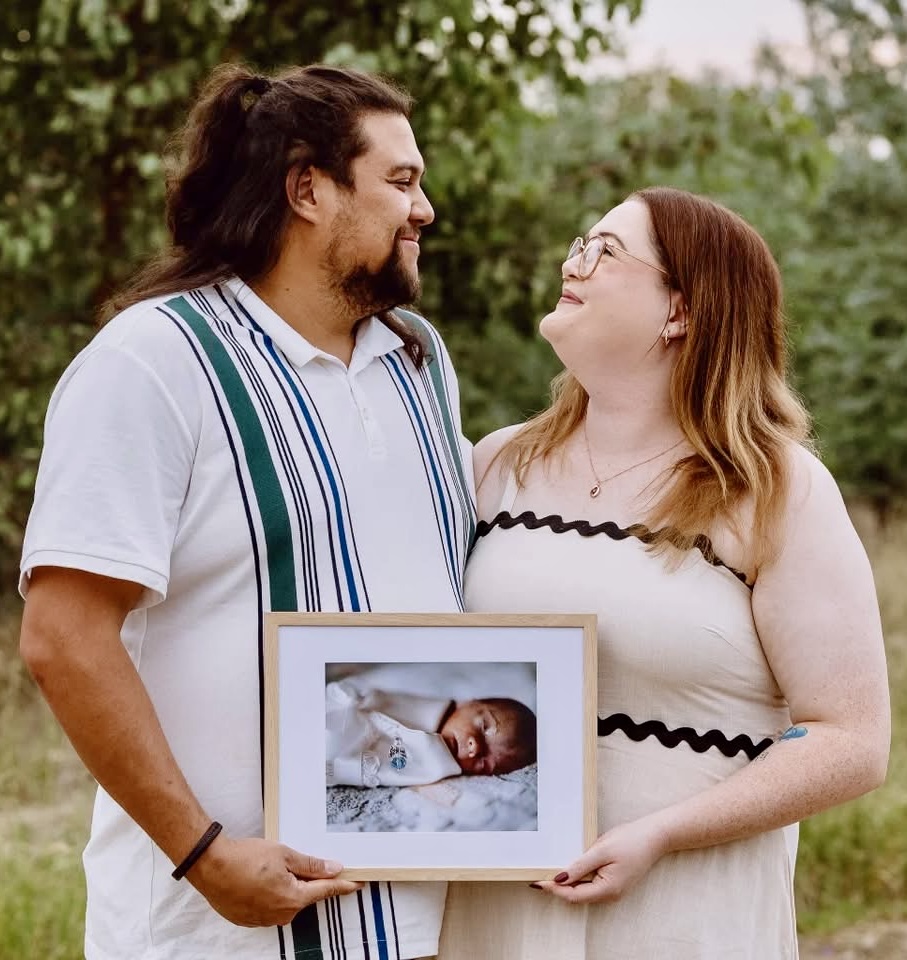
Bradley and Dana Byron with a photo of their son Teddy who would have turned three this week. Photo: Supplied.
CONTENT WARNING: The following story may distress some readers.
As October drew to a close, the world observed Baby Loss Awareness Week with a global “Wave of Light” event, where people remembered and honoured babies lost during pregnancy or infancy.
Region also wants to shine a light on this sensitive topic and would like to thank those who have bravely spoken about their traumatic loss, to raise awareness and help others.
We advise that the following feature article contains heartbreaking stories of baby loss.
During the week Dana and Bradley Byron honoured their beloved son Teddy, who would have been an energetic, happy and curious toddler celebrating his third birthday, had he not tragically passed away before birth on 15 October 2022.
While Teddy may no longer be physically present, to Dana, Bradley, and their families, Teddy is dearly loved and treasured, and they openly speak of him to end the silence surrounding baby loss and miscarriage.
“I was ready to be a dad. We had been dreaming of this for such a long time,” Bradley said.
That joy surrounded the couple and their families as the weeks went by, and as little Teddy grew inside Dana’s belly, until the unthinkable happened. In a blink, their precious baby’s life stopped, and their world was turned upside down.
“I couldn’t understand why this had happened. We were good people,” he said.
“I was so angry at everything and everyone, but I had no one to blame because there was no one to blame. The doctor said it was a ‘million-to-one chance’ and we unfortunately were the one,” he said.
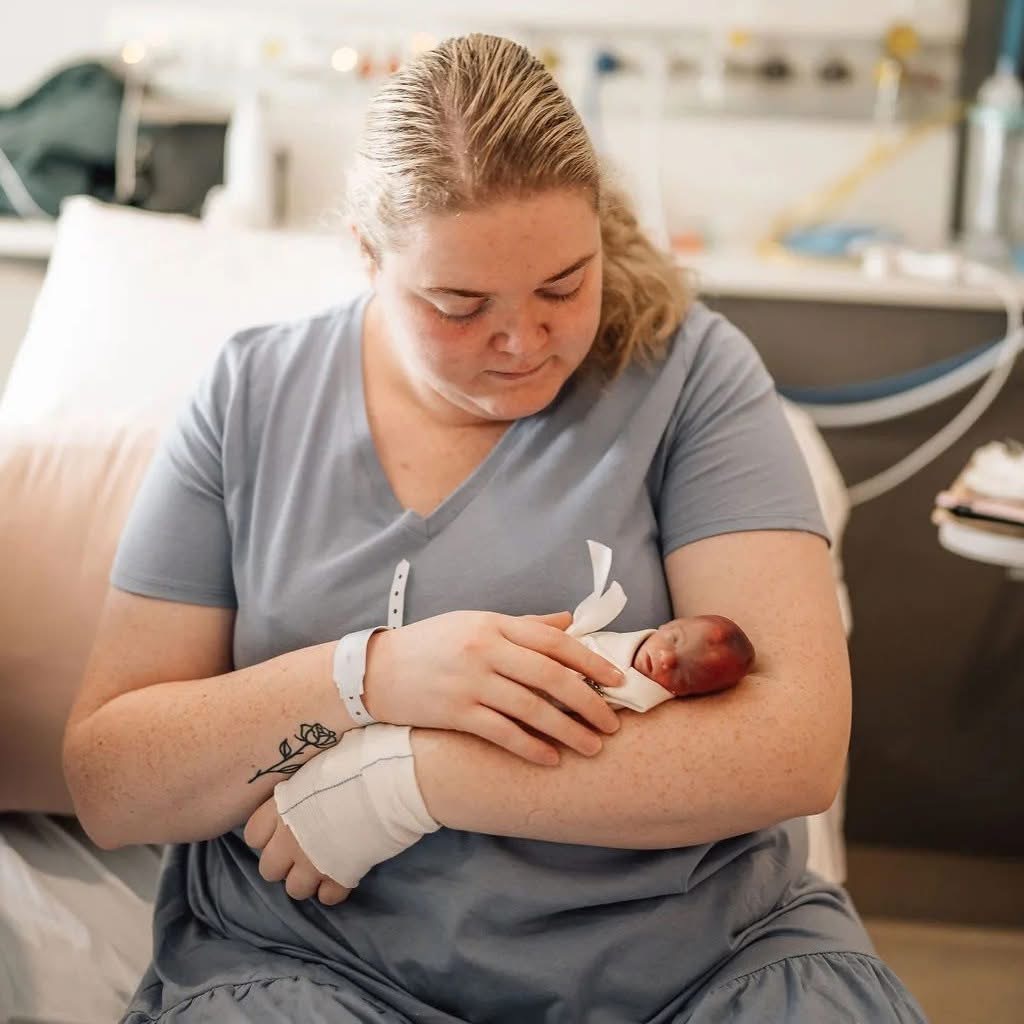
Dana Byron from Wagga with her son Teddy. Photo: Supplied.
In Australia, an estimated one in four confirmed pregnancies end in miscarriage. Add to this 2278 annual stillbirths and 738 neonatal deaths, and it means that every one of us would know at least one person who has lost a baby.
The shocking part of this is, many women and their partners endure this pain alone, due to the silence around this painful reality.
Elke, a nurse, lost three pregnancies in succession to miscarriage, one of these with twins.
“I was 17 weeks pregnant when I miscarried so I was actually hospitalised and put into a labour ward and I had to deliver the baby,” Elke said.
“I was surrounded by all these women who had their babies, and I understand from a care perspective that this was where I would get the best care, and the nurses were amazing, but from a human perspective it was awful,” she said.
At the time, Elke had two healthy young children, and after the three miscarriages she went on to have a third and fourth child, but recalled how thoughtless comments at the time of her losses that were intended to comfort did the opposite.
“People would say, ‘Oh you’ve got two kids, you’ll be OK,’ and they didn’t mean to be insensitive, but it really was.” Elke said. “The hardest things for me to deal with was the loneliness as I didn’t have support.
“A lot of people tend to minimise miscarriage and infant loss because they don’t think you can bond with your baby as you’ve ‘only been pregnant for a few weeks’, but what they don’t understand is by the time that you’ve accepted the pregnancy, you’ve imagined that baby in the context of your life and their life, so when you lose it, you’re mourning the loss of your baby’s whole life, and that’s a massive loss.”
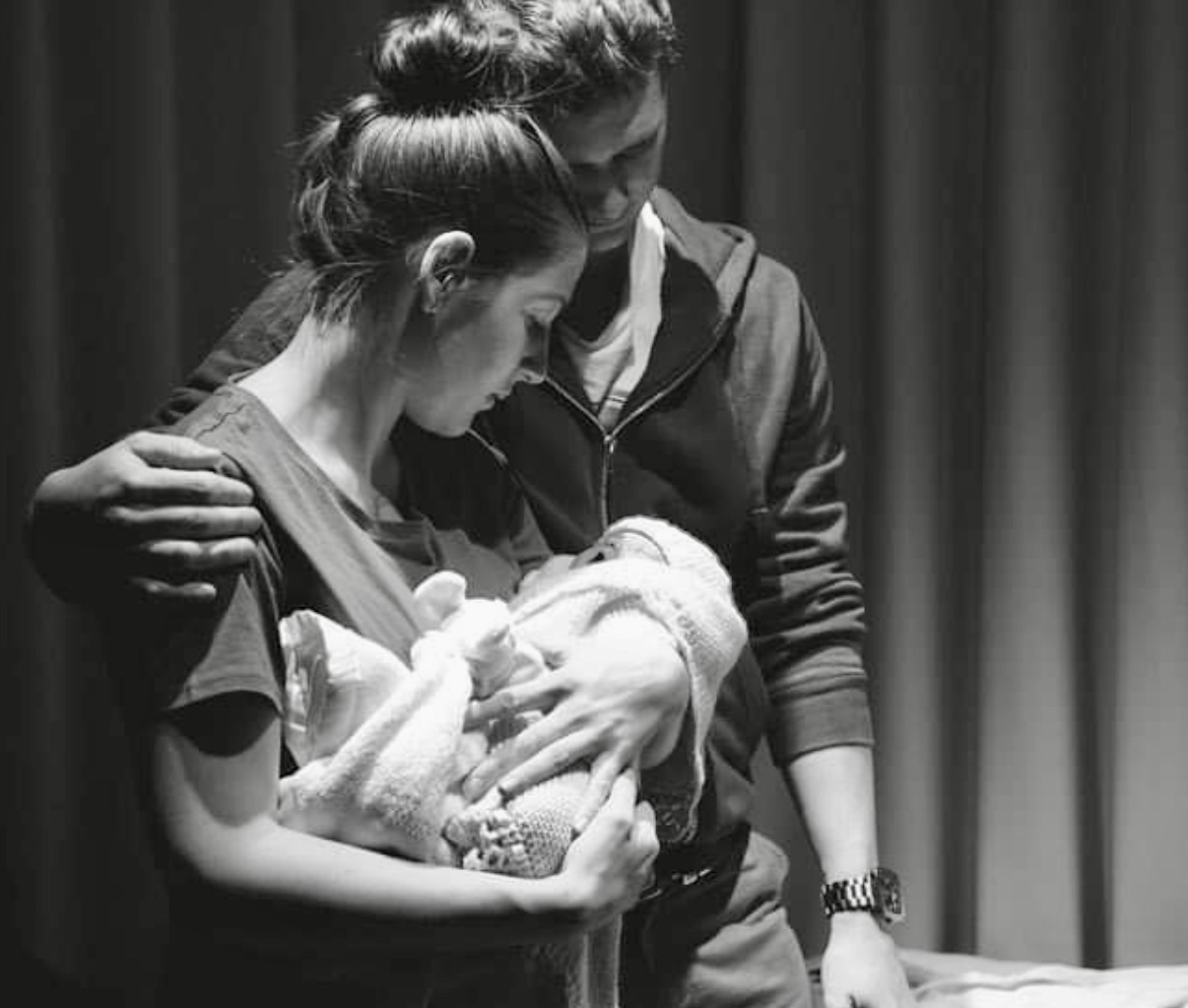
Bek and Matt from Wagga cradle their daughter Mia after she was stillborn at 35 weeks and 4 days. The lack of support saw Bek co-found the Vilomah Community in Wagga. Photo: Vilomah Community.
Megan carried her first baby Ruby to full term, but straight after giving birth, “everything went wrong” and there were complications. Despite giving little Ruby CPR, doctors and nurses weren’t able to bring her back.
“When my husband called my mum to say that Ruby had died, she told me later on that she just looked at my dad and said, ‘It’s 2010. Babies are not meant to die like this,'” Megan said.
For Megan, the loss was so great that she and another Wagga woman, Bek Baker, set up the Vilomah Community. Bek also was processing the loss of her daughter Mia who was stillborn at 35 weeks and 4 days.
The word “vilomah” is Sanskrit for “against the natural order” and is used to describe a parent who has lost a child. It’s a perfect word for an imperfect situation; no parent should ever have to bury their child, yet in the Riverina the Vilomah Community has grown to 90 families in just four years.
“It’s devastating. In the space of the two-week July school holidays this year, there were six local babies that ranged from 18 weeks to full term who didn’t make it,” Megan said.
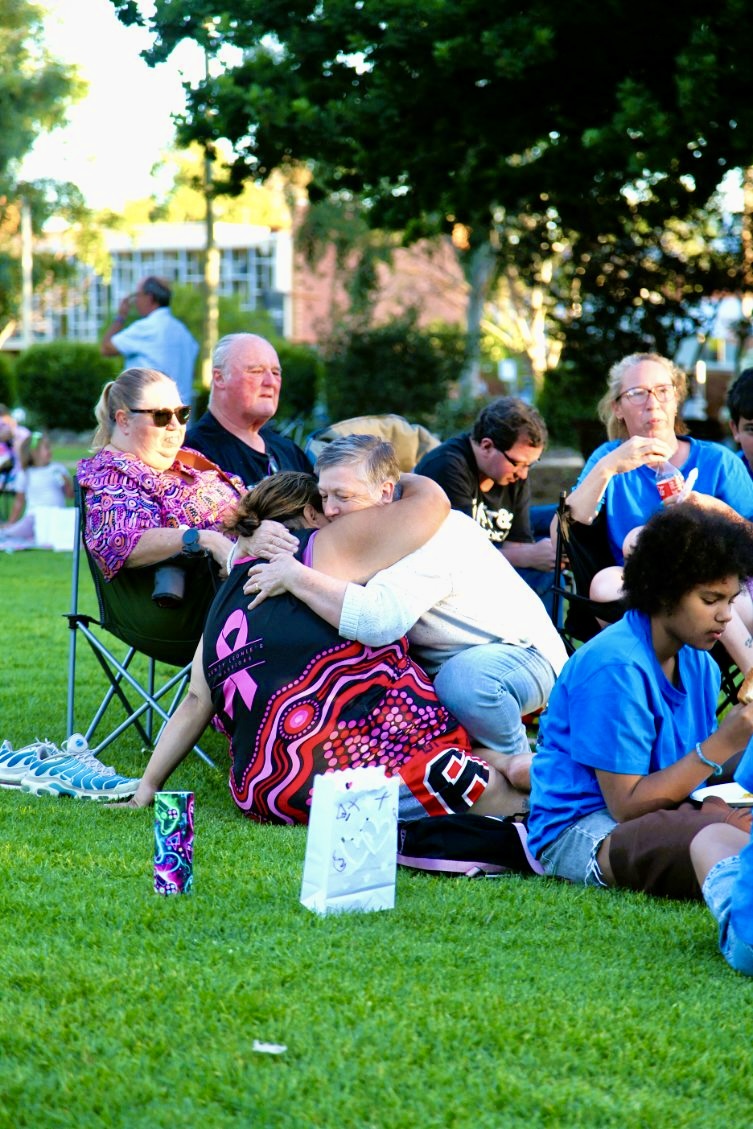
Families gather at Victory Memorial Gardens on International Pregnancy and Infant Loss Remembrance Day, to honour the babies they’ve lost. Photo: Vilomah Community Wagga.
Rosemary almost died from blood loss when she started haemorrhaging badly at home while her husband was away.
She was unprepared, losing blood fast, and had to deliver the baby on her own while waiting for an ambulance.
“I saw that baby and actually held it and wrapped it in a hand towel and put it in an ice cream container,” Rosemary said.
“I lost so much blood that I was hospitalised and I shared a ward with a mum who was waiting to have an abortion. She had two already and thought she couldn’t cope with three, and I had just lost mine.
“It was a dear little baby and I often think about that baby and what they did with it when I gave it to the hospital. I never saw it again and no one ever mentioned it. You just had to ‘get on with it’ back then.”
Thankfully now, there is the Vilomah community support group which plays a much bigger role in guiding families who are locked in a swirling miasma of grief and confusion. The group is especially conscious of the grief and loss being felt by the whole family, with a support group especially for dads.
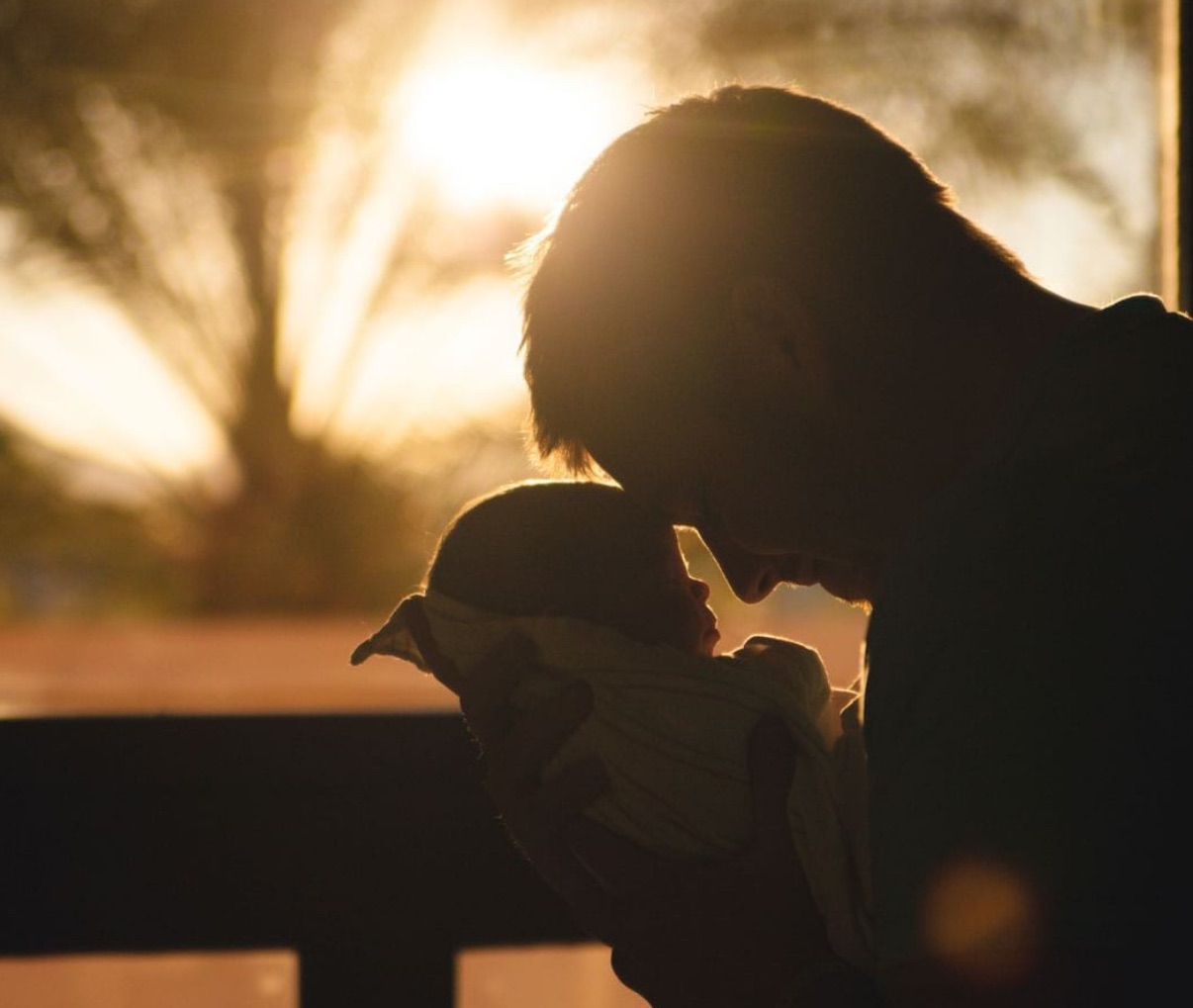
“Dads grieve too.” The Vilomah Community for Baby and Infant Loss has a dads support group. Picture: Vilomah Community.
“The midwives contact us and let us know that there’s a new family at the hospital, so we go up,” Megan said.
“We can take hand and feet castings, we can organise photography and liaise with the funeral homes and purchase urns for the family if they cremate their baby, and then from there is a 12-month program where we support them through their first Mother’s Day, Father’s Day, Christmas, baby’s birthday and subsequent anniversaries,” Megan said.
Angela has never fully recovered from the grief of having “four or five miscarriages” – she doesn’t know exactly as the trauma is too much to process even years later.
“I remember one as (my husband and I) announced it, not thinking that we might lose it, only to go back to the people we’d spoken to to say, ‘Ah, we are no longer pregnant,'” Angela said.
“It was really heartbreaking, especially when we had to tell the grandparents that they wouldn’t be grandparents. It was awful,” she said.
“I knew some pregnancies were twins as my doctor had a new ultrasound machine and whenever I was pregnant he wanted to use it and so I could see the heartbeats and blips of babies, and I’d go there every week to see how the pregnancy was progressing, until there was no blips,” she said.
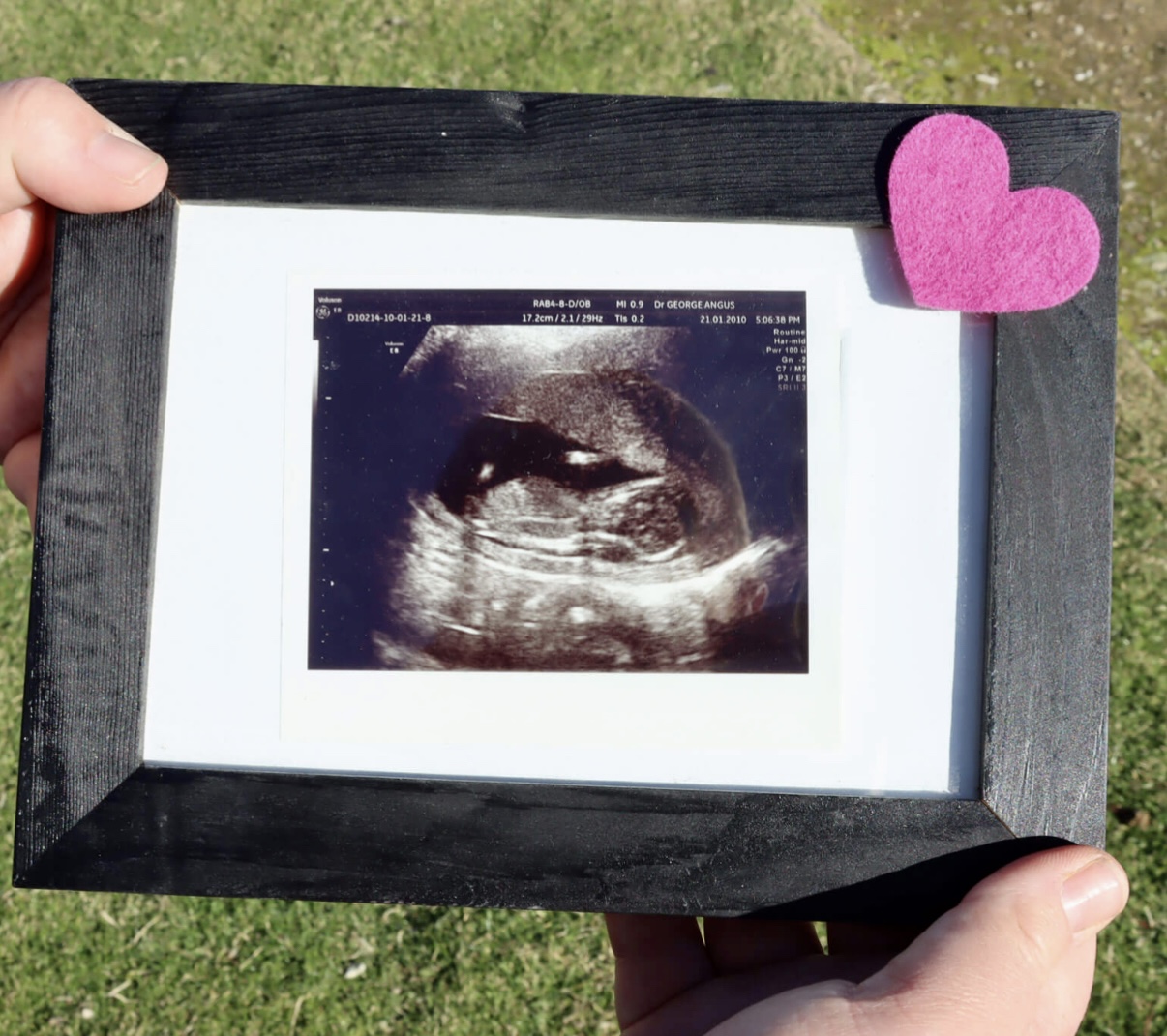
A Vilomah family shares its scan of their beloved baby. Picture: Vilomah Community.
“I had this immense guilt, wondering if I had done something wrong? Maybe I shouldn’t have eaten that cheese? Did I walk too fast? Did I not drink enough water? I was questioning everything and I became hypervigilant, and when I became pregnant I kept it hidden in case I’d miscarry again. I was so stressed out and every day I was looking into the toilet to see if there was blood there, every single time, and when I finally had my twins, they were premature and I delivered them at 32 weeks.”
Angela’s twins are now thriving healthy teenagers, but she still thinks of the ones she lost.
“I remember being told by someone who miscarried before I went through it myself and back then I didn’t actually know what to say,” Angela said.
“Now if someone told me that they had lost a baby, I’d tell them that I was so sorry to hear that and I’d ask them how they are feeling and if they want to talk about it. Just ask them, how they are doing, because people who just say, ‘Oh, I’m sorry to hear that,’ sort of shuts down what could be a healing conversation.”
Another issue for families, is when some suffer postnatal depression when they give birth to a healthy baby later. Angela said after so many miscarriages, she couldn’t understand how she was suffering depression after delivering twins.
“Postnatal depression and the guilt I had after having two healthy babies was crushing. I was thinking about how much I wanted to have babies, and how much I had to go through to this point, and yet I couldn’t understand why I was so depressed and why was I crying all the time? What’s wrong? It’s such a terrible mind place to be in. PANDA checked in on me and rang me every day. They were amazing,” Angela said.
PANDA or Perinatal Anxiety & Depression Australia, supports the mental health of parents and families during pregnancy and in their first year of parenthood.
The Vilomah Community’s purpose is that no woman or family experiences pregnancy and infant loss alone. The charity holds regular fundraisers and events to ensure that no one is left behind.
To find our more about the Vilomah Community click here.







